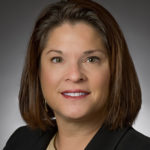In this Expert Insight Interview, Nirupa Netram discusses how to attract top talent to grow your business and what the phrase “top talent” actually means. Nirupa Netram is a diversity and inclusion consultant, trainer, and speaker.
This Expert Insight Interview discusses:
- How the recruitment process hasn’t changed over the years
- What needs to be in a job description and what should be avoided
- How to avoid alienating job seekers
Recruitment Process
Most people recruit in a very traditional manner. They put together a job description, hand it to HR, and ask them to find somebody who fits the profile. There is rarely a lot of strategic thought behind the process.
Nirupa Netram says that there first needs to be a lot more thought put into the job description itself because this is the first thing that a job seeker sees and notices about your company. Typically, they’re looking for a job, seeing the posting, and reading the job description, so you want to ensure that your job description conveys that you run a diverse, equitable, and inclusive workplace.
Optimized Job Descriptions
It is vital for the job descriptions only to have the job responsibilities that are required. So many times, we see job descriptions that go on for pages and pages. This makes candidates think that all of these responsibilities are necessary and become overwhelmed. The same applies to the qualifications.
Business owners and HR managers should consider all the diversity available in the workforce and attract the most qualified people from this vast pool of talent. This means that the way that the job description is built matters most of all.
Gender-Neutral Tone
One thing that should never be put into job descriptions is gender-coded wording. You want to make sure that your job description truly is inclusive, and that begins with your choice of words. This may include simple things like masculine-sounding words or using the word “he” instead of a more gender-neutral tone.
There is a possibility that someone will read your job description and decide that they wouldn’t fit into your team simply based on the fact that they wouldn’t feel welcome in a masculine-focused environment.
Our Host
John is the Amazon bestselling author of Winning the Battle for Sales: Lessons on Closing Every Deal from the World’s Greatest Military Victories and Social Upheaval: How to Win at Social Selling. A globally acknowledged Sales & Marketing thought leader, speaker, and strategist, he has conducted over 1500 video interviews of thought leaders for Sales POP! online sales magazine & YouTube Channel and for audio podcast channels where Sales POP! is rated in the top 2% of most popular shows out of 3,320,580 podcasts globally, ranked by Listen Score. He is CSMO at Pipeliner CRM. In his spare time, John is an avid Martial Artist.

